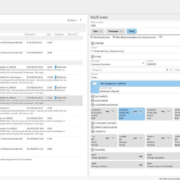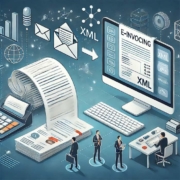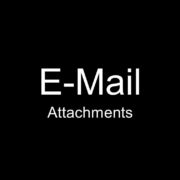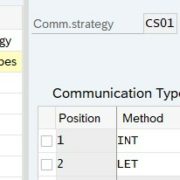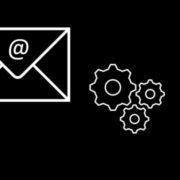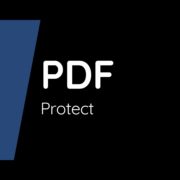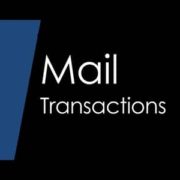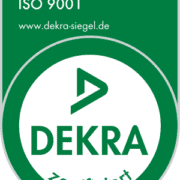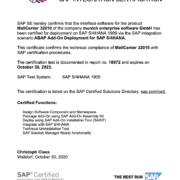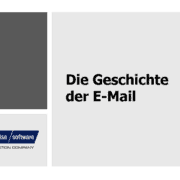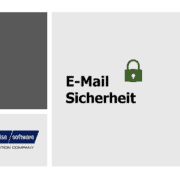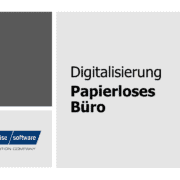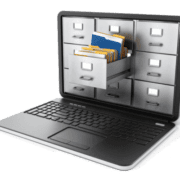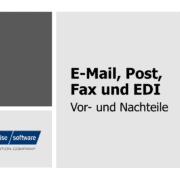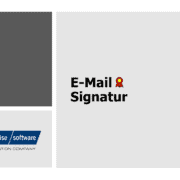Digitization is progressing with great strides – and the introduction of the e-invoicing obligation from 2025 is a significant milestone for companies in Germany. While some companies are already voluntarily relying on electronic invoices, their use will soon become mandatory.
- But what does that mean in concrete terms?
- What are the deadlines?
- And how can companies best prepare for it?
In this blog post, we will give you a comprehensive overview of the upcoming e-invoicing obligation and explain the advantages of it.
What is e-billing?
An e-invoice (electronic invoice) is a digital invoice format that is structured and machine-readable. Unlike traditional PDF or paper invoices, which have to be processed manually, e-invoicing enables automated processing and integration into accounting and ERP systems. Common formats include XRechnung and ZUGFeRD.
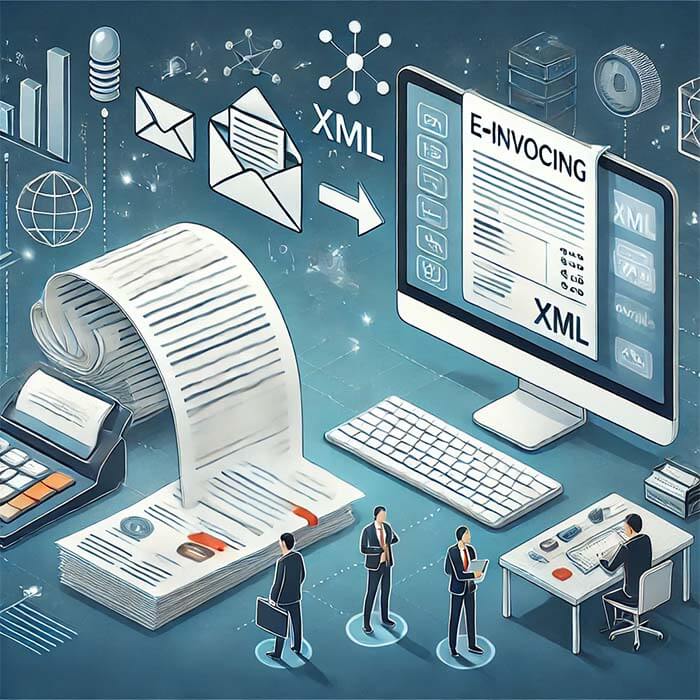
SAP and e-invoicing
How does SAP support the introduction of e-invoicing?
SAP offers various solutions for implementing e-invoicing to make it easier for companies to comply with the new legal requirements. Key features include:
- SAP Document Compliance: Enables seamless processing of e-invoices in accordance with regulatory requirements.
- Integration with SAP S/4HANA: Provides automatic invoice processing with support for XRechnung and ZUGFeRD.
- SAP Business Network: Facilitates the electronic exchange of invoices with partners and suppliers.
Advantages of e-invoicing with SAP
Companies that use SAP solutions for e-invoicing benefit from:
- Automated invoice processing with reduced error rate.
- Compliance with legal requirements through ready-made compliance solutions.
- Efficient integration into existing business processes.
Why is e-invoicing being introduced?
The introduction of e-invoicing is part of the efforts of the European Union and the German government to digitize and modernize administration. The main reasons for this change are:
- Combating tax fraud: Digital processes make tax evasion more difficult.
- Increased efficiency: Invoice processing becomes faster and more cost-effective.
- Sustainability: Paper consumption is reduced.
- Harmonization with EU requirements: Germany implements EU directives on invoicing.
Who is affected by the e-invoicing obligation?
From January 1, 2025, all companies in Germany will be obliged to receive electronic invoices in the B2B (business-to-business) sector. In concrete terms, this means:
- From 2025 , all companies must be able to accept and process electronic invoices.
- From 2026 , companies will also be obliged to issue invoices in electronic form themselves.
This affects all companies, regardless of their size. Only small businesses and companies with low sales could benefit from certain reliefs.
What formats are allowed?
Not every electronic invoice meets the legal requirements. An e-mail with a PDF attachment is not an e-invoice in the sense of the law. Acceptable formats are:
- XRechnung: A structured XML format that has already established itself for exchange with public clients.
- ZUGFeRD: A hybrid format that includes both a PDF view and machine-readable XML data.
Benefits of e-invoicing for businesses
1. Time and cost savings
- There is no need for manual entry, which speeds up accounting.
- Fewer errors through automated processes.
- Faster payment processing through digital processing.
2. Greater transparency and traceability
- Electronic invoices are standardized and easy to track.
- Uniform documentation simplifies tax audits and archiving.
3. Improved sustainability
- Less paper consumption and lower printing and shipping costs.
- Reduction of the CO₂ footprint through digital transmission.
4. Compliance with legal requirements
- Companies avoid penalties and fines through timely implementation.
- The integration of e-invoicing facilitates future compliance requirements.
Implementation challenges
Although the benefits outweigh the disadvantages, there are some challenges that companies must overcome:
1. Technical adjustments
- Companies need to ensure that their accounting software can handle e-invoices.
- If necessary, updates or new ERP systems are required.
2. Training of employees
- Employees must be familiarized with the new processes and software solutions.
- Finance and accounting in particular must adapt to the new requirements.
3. Conversion of processes
- Companies need to adapt their invoicing.
- The transition from paper or PDF invoices to structured formats requires a change in process.
Steps to successful implementation
1. Analysis of current invoicing processes
- How are invoices currently created and processed?
- What systems are in use?
2. Examination of technical requirements
- Does the existing software support e-invoicing?
- If not, what upgrades or alternatives are there?
3. Choosing the appropriate e-invoice format
- Decide whether to use XRechnung or ZUGFeRD.
- If international business partners are affected, consider their requirements.
4. Training of employees
- The accounting department and other relevant teams should be trained.
- Introduction of internal guidelines for the new invoicing.
5. Testing phase and gradual introduction
- Companies should first test e-invoicing in parallel with the previous method.
- Identify and resolve issues early, before the legal obligation occurs.
6. Inform partners and suppliers
- Inform business partners about the changeover at an early stage.
- Ensure that suppliers can also issue electronic invoices.
Result
The introduction of e-invoicing from 2025 marks an important step towards digitization and increased efficiency in accounting. Companies should prepare early on in order to overcome technical and organizational challenges in time. Those who act now can not only meet legal requirements, but also benefit from the advantages of electronic invoice processing in the long term.
With our e-invoicing solution , we offer you a comprehensive, SAP-compatible platform that optimally prepares you for the new requirements. Our solution enables seamless integration into your existing ERP system, reduces manual effort and ensures audit-proof processing. Use the remaining time and rely on a future-proof e-invoicing solution – contact us today!

